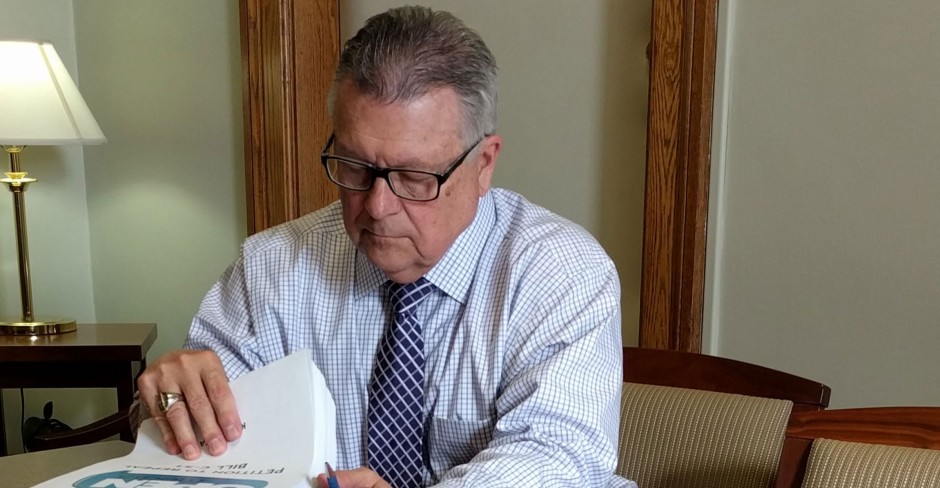Security oversight committee is an encouraging step, but we have a long way to go to safeguard Canadians’ privacy
Today’s announcement has the potential to strengthen oversight of Canada’s security agencies, but is only the first of many reforms required.
Today, Public Safety Minister Ralph Goodale and House Leader Dominic LeBlanc have announced legislation to establish a new parliamentary National Security and Intelligence Committee. The Committee will oversee the security activities of nearly 20 government departments and agencies. Privacy advocates have long called for the creation of such a committee, but warn that it will be insufficient in and of itself to safeguard Canadians’ privacy and to address the weaknesses in our current oversight system.
We recently met with Minister Goodale to discuss Canadians’ concerns about privacy. Today’s announcement is encouraging, but further measures, including the full repeal of the dangerous provisions introduced in Bill C-51, are needed. Canada is the only country in the Five Eyes alliance to not have parliamentary oversight, making this a much-needed step toward accountability and transparency in securing Canadians’ privacy.
The creation of this committee is just the first step toward reining in the long series of privacy abuses that have been shown to be systemic within Canada’s security agencies. Although this legislation should help narrow our long-standing oversight deficit, true accountability will not be achieved solely through the creation of a parliamentary committee — we need better laws.
The legacy left by last year's Bill C-51, and a failure to proactively regulate and protect Canadians from invasive devices including Stingrays, means that oversight can only go so far. We need more, and Canadians will need to actively engage in upcoming consultations if we’re to get the robust privacy protections and oversight framework we deserve.
In March, a diverse range of civil society organizations sent Minister Goodale a letter setting out the necessary components of an effective and integrated national security accountability framework for Canada. The letter highlighted how a parliamentary committee alone would not be sufficient to address our accountability deficit. It also made two key recommendations that appear not to have been taken up by the government at this stage:
A consolidated and enhanced expert review body – a “superSIRC” – with robust access to secret information, capable of raising efficacy issues but charged primarily with “propriety” review – that is, focusing on whether the Security and Intelligence community comply with law, policy and directives, and also empowered to hear complaints concerning Security and Intelligence community conduct.
An independent monitor of national security law built on the UK and Australian model, with robust access to secret information and charged with expert analysis of Canada’s proposed or actual antiterrorism and national security legislation.
Among the other potential shortcomings of this morning’s announcement are:
The Committee will not be empowered to hear complaints from Canadians about the activities of security agencies.
The Committee will need to run its reports past the government, which will remove classified information. The determination of what constitutes “classified” information will be made by the government, running the risk of making the reports functionally useless. This also means the government can determine the timing of when reports are released, a key shortcoming of the UK model.
Information provided to the Committee can be restricted by the Minister of Public Safety
The Minister of Public Safety will also have the power to shut down Committee investigations if she or he believes they will be injurious to national security.
Committee members will need a high-level of security clearance, and will lose their parliamentary immunity if they choose to speak out.
When we consulted Canadians early last year as part of the groundwork for its crowdsourced pro-privacy action plan, insufficient oversight of spy agencies was a top concern. That plan set out 10 key recommendations to create a culture of accountability for Canada’s security agencies.
Canadians are working together for stronger privacy safeguards at OurPrivacy.ca.


 Take action now!
Take action now!
 Sign up to be in the loop
Sign up to be in the loop
 Donate to support our work
Donate to support our work